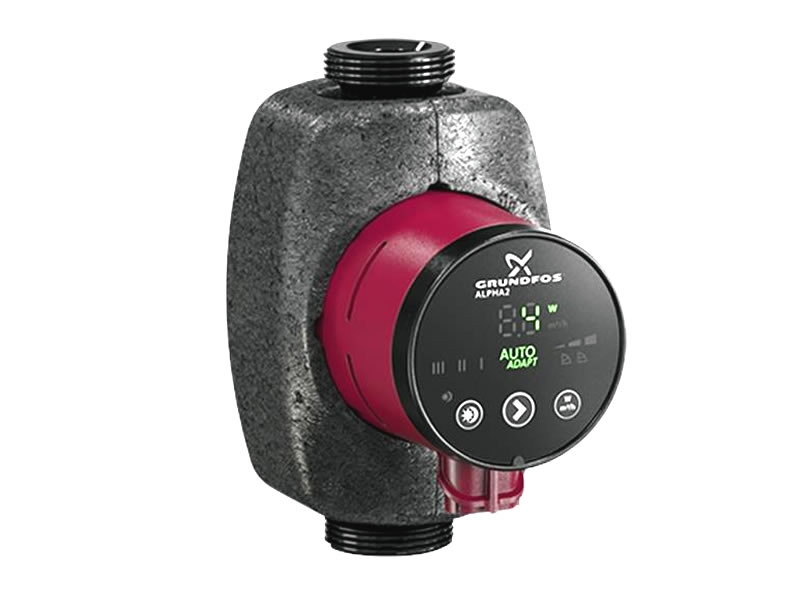Noise from water and heating systems is a very annoying problem, as these systems operate continuously, it can significantly affect not only the quality of sleep, but your time spent at home in general. Sounds spread through liquid, pipes and masonry, and are therefore often heard in more distant parts of the house.
Noise can also indicate various technical problems or faults in water or heating systems, so you should not avoid this problem and focus on its solution. Some of the possible causes of noise can also lead to irreversible damage to the system and individual components.
Various unwanted noises can come from pipes, but also from electronic devices, such as a circulator pump. Although manufacturers promise noiseless pumps, you may encounter annoying and disturbing noises in a variety of situations.
So the issue mau lie in the pump itself or in the water distribution. It is often uneasy to determine whether the source of noise is the pump or the piping itself. This is because the pump affects the flow of water in the pipes, and at the same time its sounds spread to the distribution systems.
Water distribution and heating are very complicated systems that are subject to the complex laws of hydraulics. Therefore, problems can often only be detected by a qualified and experienced professional.
Before calling plumbers or heaters, you can try to discover the cause yourself. The most common problems are also easy to solve on your own.
In the case of aerated pipes, you may hear an unpleasant hum or even whistling. Bleed the system using vent valves.
If a pump is set incorrectly, water will flow too quickly in the pipes, which can cause a lot of noise. Try lowering the pump power and see if the noise decreases.
Cavitation occurs in the pipeline during unstable conditions, such as when a valve closes. Changes in the flow of water and the associated negative pressure cause formation of cavities or vacuum bubbles, which vibrate in various ways and impinge on the pipes. We can perceive these phenomena as unpleasant sounds of humming and whistling. In addition, the cavities accelerate the corrosion of the pipes. How to prevent cavitation? Increase the overpressure in the tank, reduce the fluid temperature and the pump speed.
Sometimes the problem can be a distribution project itself, which can be undersized, oversized, or the pipeline does not have a sufficient slope. In this case, unfortunately, the solution is not easy. If you do not want to redo the entire wiring, acoustic insulation may be a temporary solution.
Before launching a new heating system for the first time, you should have it balanced properly. One of the symptoms of an unbalanced system is noise and whistling. In the case of smaller units, you can also do it yourself, thanks to a circulator pump with an automatic balancing function.
Sometimes even a quality pump can make unpleasant noise, especially if it has been incorrectly selected, installed or insufficiently maintained. Both the circulator pump and the boiler pump can make unwanted noises.
If the noise problem occurred after the pump replacement, it can be assumed that the cause of the noise is its incorrect installation or a wrong model. If the pump has been replaced by some company, have them replace it again. However, if you have chosen and installed the pump yourself, you need to replace with a suitable pump yourself.
Not only piping but also the pump can be aerated. Bleed the pump by setting the maximum speed for 30 minutes, or install a bleed valve. Some pumps bleed automatically.
As mentioned above, too high fluid velocity in the pipe causes noise. However, in the case of low flow, on the other hand operation of the pump is noisy. It is therefore ideal to install a pump with a control unit that optimizes fluid flow so that not only the pump but also pipes are noiseless.
Dirt in the pump causes the loudest noise. This problem is more common in older distribution. You can prevent it by installing filters that catch dirt in the pipes.
However, you must also clean these filters regularly, as soon as they are full of dirt, they stop working. If the dirt has already entered the pump directly, all you have to do is clean the pump, especially the impeller, or replace the whole pump.

Modern electronic circulator pump
Even if the source of noise comes from the water supply and heating system, the best solution is the sufficient prevention against these undesirable phenomena. Therefore, make sure you install water distribution properly, perform their balancing and regular venting. The water supply documentation should be developed by a qualified designer. Leave installation of the pipeline to a professional company, do not try it yourself. There are a lot of possible mistakes that an amateur could make.
Use a modern electronic circulator pump, preferably with a control unit that can automatically optimize its operation, thus avoiding low or too high flow. Such pumps often also have an automatic bleeding function. Never install a pump that has different dimensions or parameters than your old pump - in the case of new construction or new distribution, the necessary parameters of the pump will be determined by the designer. Install dirt filters on the piping, and clean these filters regularly.
If you follow these necessary steps, you should not experience noise from the distribution. Healthy and well-functioning pipeline is important not only for your comfort, but also for longer life and low failure rate of the system and your electronic devices.